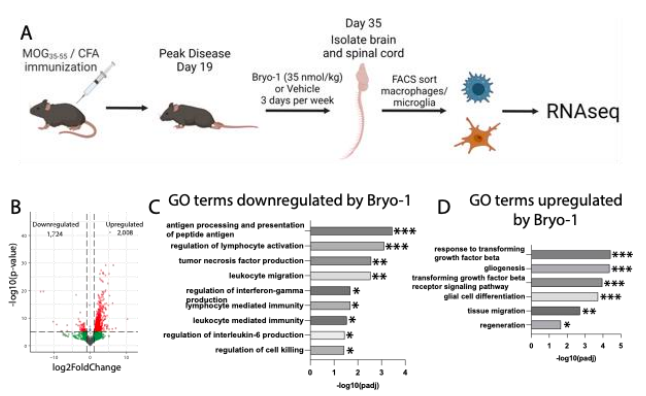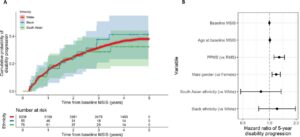
Payam Gharibani, et al. – Johns Hopkins School of Medicine.
In this study, the protein kinase C modulator bryostatin-1 significantly shifted microglia away from inflammatory profiles, expanding on previous work establishing this in peripheral immune cells. This led to improved recovery during experimental autoimmune encephalitis (EAE) models of MS, even when treatment began weeks after inducing EAE, as well as from focal demyelination using lysolecithin. Bryostatin-1 has an established safety profile in humans, rendering it a viable candidate for therapeutic use.
Many of the signaling pathways thought to be regulated by bryostatin-1 are involved in other neurodegenerative diseases such as AD; indeed, bryostatin-1 has been tested in clinical trials for AD. While recent trials were unsuccessful in achieving their goals, those goals were to see rapid improvement in patients with moderate to severe AD. Trials that attempt to intervene earlier in the disease time-course, such as those examining anti-amyloid antibodies, may yield better results. Such factors will need to be carefully considered for trials in MS; given that progressive MS is typically diagnosed after some neurological damage has occurred, finding the optimal window for intervention will likely be critical.




